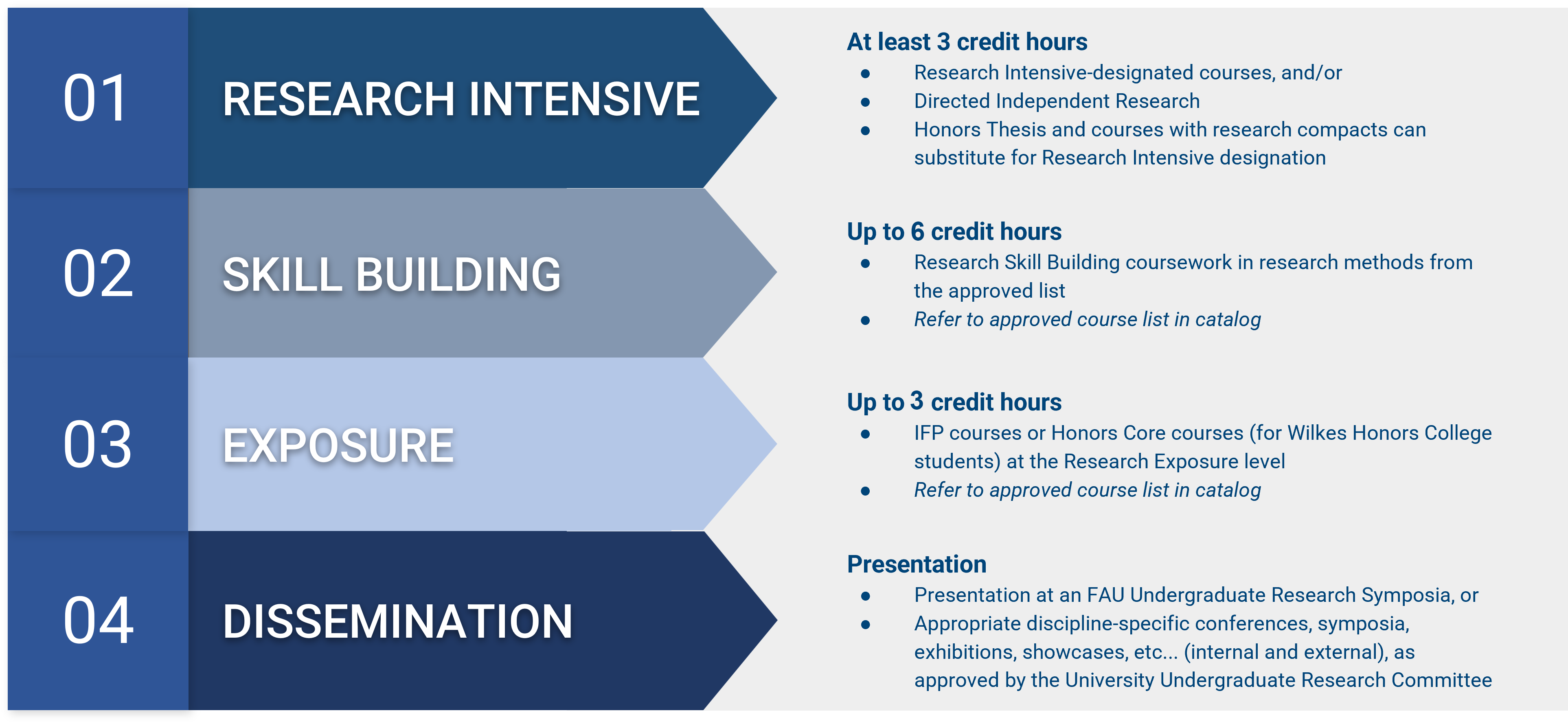Undergraduate Research Certificate
Florida Atlantic University offers a 12-credit Undergraduate Research Certificate to recognize degree-seeking undergraduate students for systematic development of excellence in undergraduate research.
Why Should I Apply for the Undergraduate Research Certificate?
-
Recognized on university transcript - The Certificate appears on a student’s transcript providing evidence of research capabilities that employers and graduate admissions committees actively seek.
-
Develop high demand professional skills – Build and demonstrate critical thinking, problem-solving, teamwork, and communication, skills that employers and graduate programs highly rank.
-
Showcase research experience – Showcase your research accomplishments and the depth and rigor of your scholarly work.
-
Strengthen your graduate school applications – Stand out in competitive admissions processes with documented research expertise and talking points about contributions to research projects.
What are the Requirements for Receiving the Certificate?
Degree-seeking undergraduate students may earn the Undergraduate Research Certificate by completing 12 credit hours of specific coursework and a presentation. Students must complete at least 3 credit hours of research intensive courses, 6 credit hours of skill building courses, 3 credits of exposure courses, and disseminate their research at the Florida Atlantic Undergraduate Research Symposium or an appropriate discipline-specific conference, symposia, etc., as approved by the University Undergraduate Research Committee. Course listings can be found below.

RI DESIGNATED COURSES Skill Building Courses Exposure Courses
DISSEMINATION OPPORTUNITIES
Additional Stipulations
-
Courses that are taken as S/U grading may count toward the Certificate with a grade of pass or satisfactory, but for courses with standard grading, students must complete coursework with a minimum of “C” or better
-
A maximum of 3 credits transferred can be applied to the Certificate
-
Course substitutions will be reviewed by the University Undergraduate Research Curriculum Committee on a case-by-case basis
How do I Apply for the Undergraduate Research Certificate?
OURI has created a stepwise instructions for students interested in declaring for the Undergraduate Research Certificate below:
Step-by-Step of Declaring the Undergraduate Research Certificate
OURI has created a stepwise instructions for Academic Advisor who are helping students declare the Undergraduate Research Certificate below:
Academic Advisor Frequently Asked Questions
Step-by-step for Wilkes Honors College Undergraduate students looking to declare the Undergraduate Research Certificate can be found below:
Step-by-Step Instructions for Wilkes Honors College Undergraduates
How Will I Know if I Satisfy the Criteria for the Certificate?
Please reach out to your academic advisor indicating your interest in pursuing the Undergraduate Research Certificate, so they can update your academic record.
After your academic record has been updated to reflect your pursuit of the Undergraduate Research Certificate, you can run a DARS Audit: FAU - Degree Audit Reporting System (DARS)
For additional information students should consult with the Office of Undergraduate Research and Inquiry ouri@fau.edu, and/or their undergraduate advisors within the Colleges.